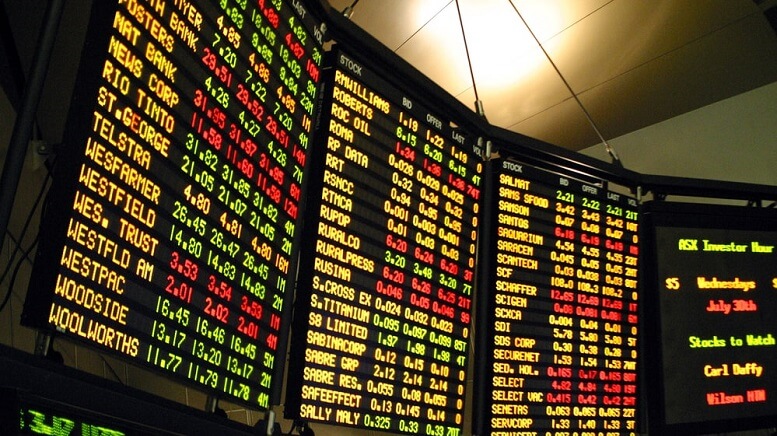The U.S. stock market is feeling the pressure of rising market volatility, and major indexes are now heading toward their second significant loss in a row. The S&P 500 slipped 1.1% in early Friday trading following one of its sharpest declines since the spring. After surging to record levels earlier this year, several high-flying names—especially in the artificial-intelligence sector—are losing altitude.
The Dow Jones Industrial Average fell by 469 points shortly after the opening bell, retreating from Wednesday’s record high. The Nasdaq composite, which is particularly sensitive to tech momentum, slid 1.6%. Precious metals weren’t spared either, with gold prices declining alongside equities.
These moves highlight growing concerns about stretched valuations, slowing growth, and changing expectations around U.S. interest-rate policy. Critics have warned for weeks that the rally since April may have been too aggressive given the uncertain economic backdrop.
Market Volatility Spreads to Global Indexes
The effects of U.S. market volatility were quickly felt worldwide. European markets opened sharply lower: Britain’s FTSE 100 dropped more than 1.1%, the DAX in Germany slipped 0.7%, and France’s CAC 40 decreased by 0.4%. Oil prices, however, managed to notch slight gains.
Across Asia, tech-heavy markets saw notable losses. In South Korea, enthusiasm around AI partnerships faded as the Kospi tumbled 3.8%. Shares of Samsung Electronics and SK Hynix—two major players in the chip industry—fell 5.5% and 8.5%, respectively.
Taiwan’s Taiex index dropped 1.8%, pressured by weakness in semiconductor names. Japan’s Nikkei 225 slid nearly 1.8%, reversing the previous day’s rebound, while SoftBank Group plunged 6.6%. Hong Kong’s Hang Seng lost nearly 1.9%, and mainland China’s Shanghai Composite slipped 1%.
Fresh economic data from China added to the gloom. Factory output expanded only 4.9% year-over-year in October—its slowest pace in more than a year. Meanwhile, fixed-asset investment contracted again, dragged down by a prolonged slump in property development.
AI Stocks Lead U.S. Sell-Off as Market Volatility Rises
On Thursday, the U.S. market suffered one of its worst days since the spring, driven by uncertainty about interest-rate cuts and a sharp pullback in major AI leaders. The S&P 500 fell 1.7%, while the Dow Jones Industrial Average and the Nasdaq composite each lost 1.7% and 2.3%.
Nvidia (NASDAQ:NVDA) was the biggest drag on the market after sliding 3.6%. Other well-known AI names were also hit hard: Super Micro Computer (NASDAQ:SMCI) dropped 7.4%, Palantir Technologies (NYSE:PLTR) sank 6.5%, and Broadcom (NASDAQ:AVGO) slipped 4.3%.
These companies have soared throughout the year, contributing heavily to the market’s recent record highs. Palantir, for example, had climbed nearly 174% year-to-date earlier this month. But such massive gains prompted comparisons to the dot-com bubble, raising questions about sustainability.
Interest-Rate Uncertainty Deepens Market Volatility
Beyond the AI sector, broader worries are weighing on sentiment. Investors are becoming increasingly unsure that the Federal Reserve will deliver another interest-rate cut in December. Only days ago, markets were pricing in strong odds of a third cut this year. Now, those expectations have fallen to about 52%, according to CME Group data.
Lower interest rates typically boost economic activity and push investment prices higher. But if the Fed pauses its cutting cycle, markets may need to adjust to a more moderate path—especially after banking on rate-related momentum for months.
Commodity and Currency Markets React
U.S. benchmark crude gained 74 cents to trade at $59.43 per barrel. Brent crude rose 69 cents to $63.70. In currency trading, the U.S. dollar strengthened slightly against the Japanese yen, rising to 154.68. The euro dipped modestly to $1.1627.
In currency trading, the U.S. dollar strengthened slightly against the Japanese yen, rising to 154.68. The euro dipped modestly to $1.1627. Investors remain cautious, monitoring global economic signals, corporate earnings, and central bank policies closely as market volatility continues.
Market participants are also keeping an eye on geopolitical tensions, trade negotiations, and emerging tech sector developments, which could influence volatility in coming weeks.
Featured Image – Depositphotos







